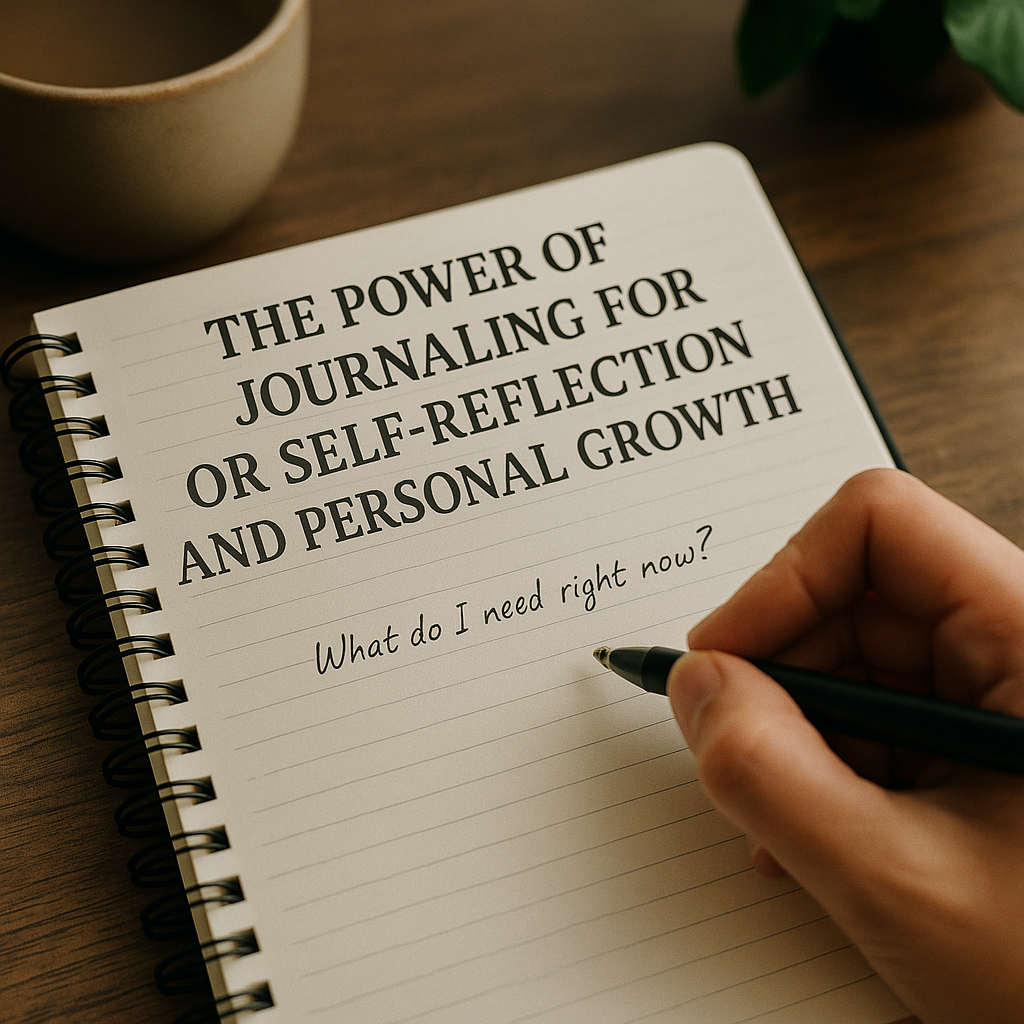Journaling isn’t just for writers or teenagers—it’s one of the most powerful tools for understanding yourself, reducing stress, and growing as a person. When you write regularly, you create space to process thoughts, release emotions, and make sense of your journey.
In this article, you’ll learn how journaling can support your personal development, and how to start—even if you’ve never kept a journal before.
Why Journaling Works
Journaling helps you:
- Gain clarity in confusing moments
- Recognize patterns in your thoughts and behaviors
- Process emotions like stress, anger, sadness, or joy
- Track your goals and growth over time
- Strengthen your self-awareness and resilience
Writing things down moves them out of your head and onto paper, where they feel more manageable and less overwhelming.
1. Start Simple (There’s No “Right” Way)
You don’t need to write full pages or have perfect grammar. Journaling is a private space for you.
Try:
- Bullet points
- Short sentences
- Lists of thoughts or questions
- Freewriting for 5 minutes without editing
What matters is consistency, not perfection.
2. Use Prompts to Get Started
If you’re not sure what to write about, prompts can help.
Here are a few to try:
- “What am I feeling right now?”
- “What’s one thing I need to let go of?”
- “What would I tell my younger self?”
- “What am I proud of today?”
- “What’s one small step I can take toward my goal?”
Prompts guide you inward and help you reflect more deeply.
3. Make It a Habit
Build journaling into your daily or weekly routine.
Tips:
- Keep your journal visible (on your nightstand or desk)
- Pair it with an existing habit (like drinking coffee or brushing teeth)
- Start with just 5 minutes a day
- Use an app if digital writing feels easier
Consistency matters more than how much you write.
4. Don’t Filter or Judge Your Words
Let go of the pressure to sound smart or inspiring. This is not for anyone else—it’s for you.
Write honestly, even if it feels messy or repetitive.
Your journal should be a judgment-free zone, where your inner voice can speak freely.
5. Try Different Journaling Styles
Explore what works best for you. Some popular styles include:
- Gratitude journaling: List 3–5 things you’re grateful for each day
- Stream of consciousness: Write nonstop for a set time
- Goal tracking: Note your progress and obstacles
- Mood journaling: Reflect on how you felt throughout the day
- Prompt-based journaling: Answer deep or creative questions
Feel free to mix styles depending on your needs.
6. Revisit Old Entries
Occasionally reading past entries can reveal how much you’ve grown.
Ask yourself:
- What has changed since I wrote this?
- How would I handle that situation now?
- What patterns do I notice in my thinking?
Looking back builds self-awareness and gratitude.
7. Use Journaling to Make Decisions
When you’re stuck or overwhelmed, journaling can bring clarity.
Try:
- Listing pros and cons
- Exploring your fears or doubts
- Visualizing possible outcomes
- Writing a letter to your future self
Often, the act of writing helps you hear your own wisdom more clearly.
8. Protect Your Privacy
If you’re worried about someone reading your journal:
- Use a digital journaling app with a password
- Keep your journal in a safe or hidden place
- Create a personal symbol system or code if needed
Feeling safe encourages deeper honesty.
Your Journal Is a Mirror—and a Map
Journaling isn’t just about documenting your days. It’s a way to connect with your inner world, uncover what matters, and grow intentionally.
Start here:
- Grab a notebook or open a new document
- Answer this prompt: “What do I need right now?”
- Write for 5–10 minutes—no judgment, just expression
What you discover on the page might surprise you. Your thoughts matter. Your journey deserves to be written.
